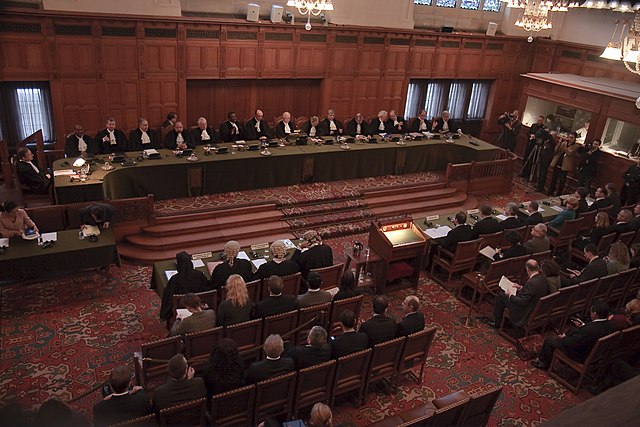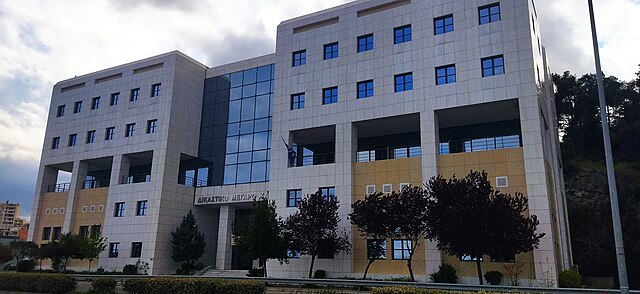In law, a trial is a coming together of parties to a dispute, to present information in a tribunal, a formal setting with the authority to adjudicate claims or disputes. One form of tribunal is a court. The tribunal, which may occur before a judge, jury, or other designated trier of fact, aims to achieve a resolution to their dispute.
Trial of Jean II, Duke of Alençon, October 1458.
The Old Bailey in London (in 1808) was the venue for more than 100,000 criminal trials between 1674 and 1834.
A court is any person or institution, often as a government institution, with the authority to adjudicate legal disputes between parties and carry out the administration of justice in civil, criminal, and administrative matters in accordance with the rule of law. In both common law and civil law legal systems, courts are the central means for dispute resolution, and it is generally understood that all people have an ability to bring their claims before a court. Similarly, the rights of those accused of a crime include the right to present a defense before a court.
A trial at the Old Bailey in London as drawn by Thomas Rowlandson and Augustus Pugin for Microcosm of London (1808–11)
The International Court of Justice
The building of the Supreme Court of Estonia in Tartu
The Court House of Kavala, Greece





